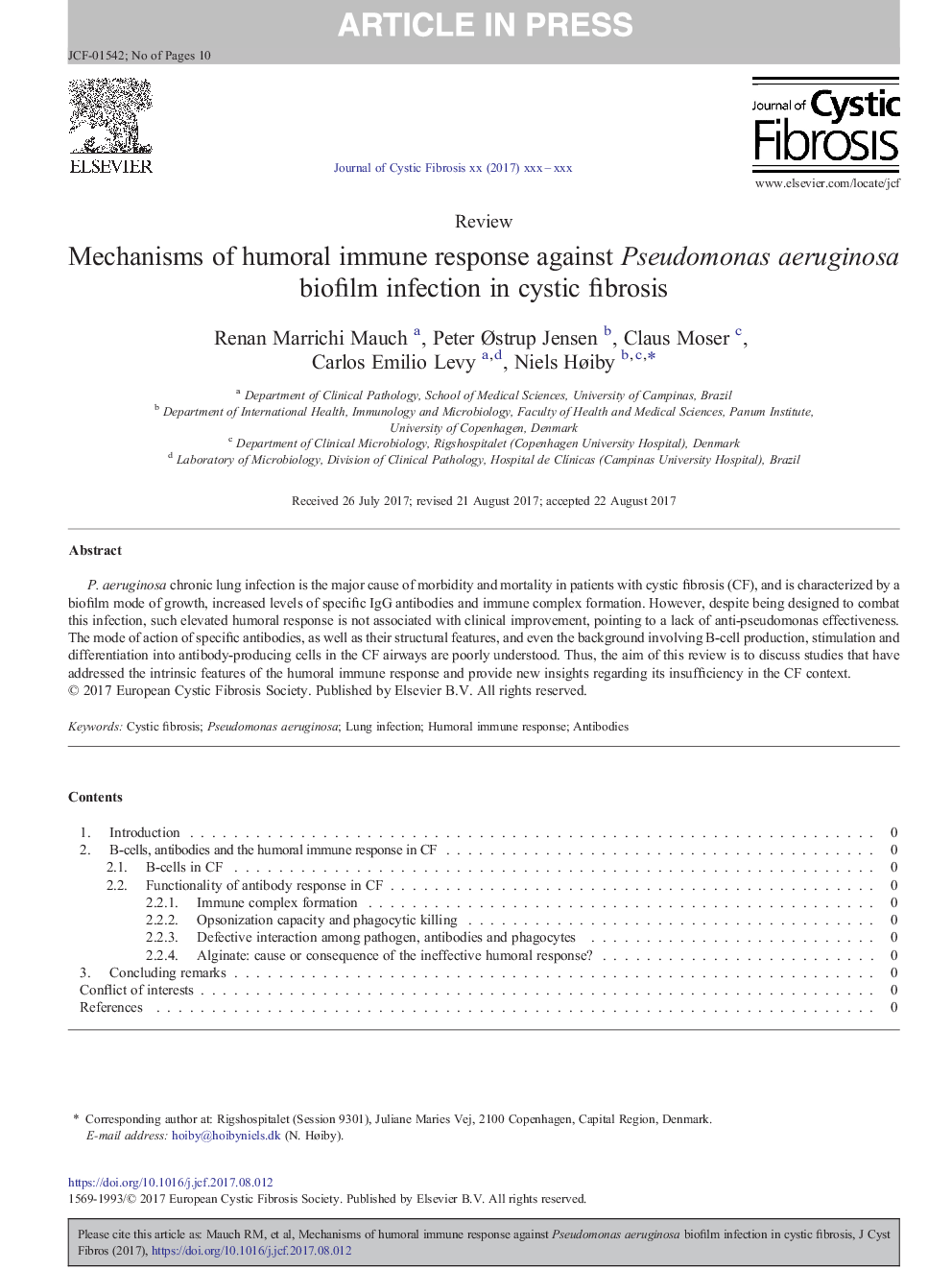| Article ID | Journal | Published Year | Pages | File Type |
|---|---|---|---|---|
| 8819621 | Journal of Cystic Fibrosis | 2018 | 10 Pages |
Abstract
P. aeruginosa chronic lung infection is the major cause of morbidity and mortality in patients with cystic fibrosis (CF), and is characterized by a biofilm mode of growth, increased levels of specific IgG antibodies and immune complex formation. However, despite being designed to combat this infection, such elevated humoral response is not associated with clinical improvement, pointing to a lack of anti-pseudomonas effectiveness. The mode of action of specific antibodies, as well as their structural features, and even the background involving B-cell production, stimulation and differentiation into antibody-producing cells in the CF airways are poorly understood. Thus, the aim of this review is to discuss studies that have addressed the intrinsic features of the humoral immune response and provide new insights regarding its insufficiency in the CF context.
Related Topics
Health Sciences
Medicine and Dentistry
Pulmonary and Respiratory Medicine
Authors
Renan Marrichi Mauch, Peter Ãstrup Jensen, Claus Moser, Carlos Emilio Levy, Niels Høiby,
